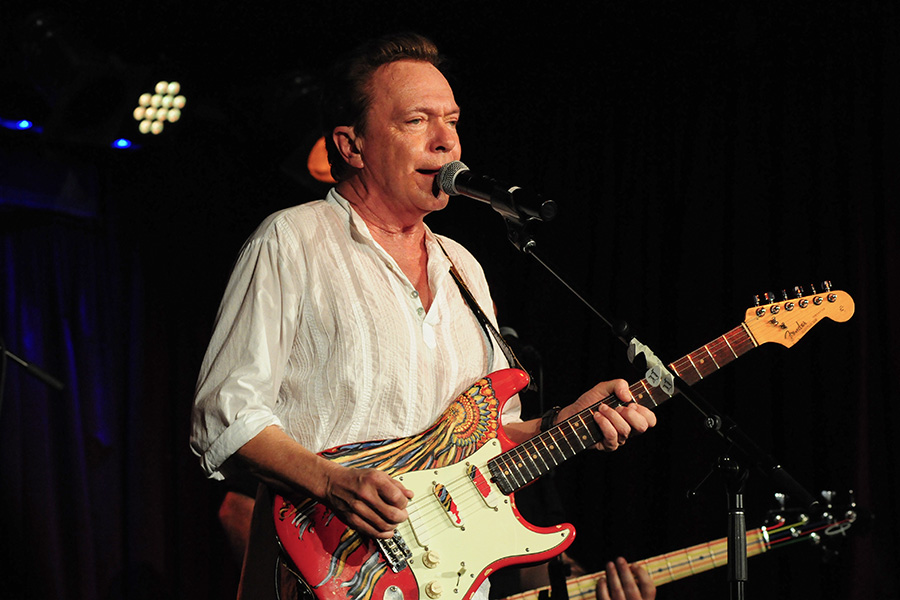
“I Lost My Chance” is regret spoken too late—the quiet realization that love doesn’t always leave loudly, but slips away while you’re still deciding what to say.
There are songs that dramatize loss, and then there are songs that accept responsibility. “I Lost My Chance” belongs firmly to the second kind. When David Cassidy sings this song, he isn’t pleading for sympathy or rewriting history to make himself look better. He is standing still inside the truth that hurts the most: nothing stopped this ending except hesitation.
“I Lost My Chance” appears on Cassidy’s debut solo album Cherish, released in 1972 on Bell Records. That context matters deeply. Cherish was the record where Cassidy first stepped away from a carefully protected image and allowed vulnerability to take center stage. Instead of proving independence through volume or bravado, he proved it through emotional honesty. Songs like “I Lost My Chance” are the evidence.
Written by Adam Miller, a songwriter whose work runs quietly but decisively through Cherish, the song is built on a devastatingly simple idea: opportunities in love do not wait forever. Miller’s writing avoids melodrama. There are no villains here, no dramatic betrayals. Just time, indecision, and the slow closing of a door that once stood open.
What gives the song its lasting weight is the way it treats regret. Regret here isn’t explosive—it’s contained. The narrator understands exactly where things went wrong, and that understanding arrives after action is no longer possible. That’s the cruel arithmetic of the song: clarity comes only when usefulness is gone. Cassidy doesn’t fight that truth. He lets it sit.
Vocally, this is one of his most restrained performances. He sings without force, without pleading, without trying to soften the admission. His voice sounds steady, but not confident—more like someone who has replayed the same memory often enough that the pain has settled into something quieter and heavier. He doesn’t sound surprised by the outcome. He sounds resigned to it.
Musically, the arrangement stays deliberately modest. The tempo is unhurried, the instrumentation supportive but never intrusive. Nothing distracts from the lyric, because nothing should. This is not a song that wants atmosphere—it wants attention. The space around Cassidy’s voice feels intentional, as if silence itself is part of the message.
The emotional core of “I Lost My Chance” is not heartbreak, but accountability. The narrator doesn’t blame fate or misunderstanding. He recognizes that delay can be as final as refusal. That insight gives the song a maturity that deepens with time. Heard young, it can sound like sadness. Heard later, it often sounds like warning.
Within the flow of Cherish, the song plays a crucial role. Surrounded by tracks that explore longing, hope, and devotion, “I Lost My Chance” introduces consequence. It reminds the listener that feelings alone are not enough—that love requires action at the moment it asks for it, not afterward. In that sense, the song feels almost philosophical, though it never announces itself as such.
What makes the track endure is its realism. Many people recognize themselves in this story—not because they were cruel or careless, but because they waited. Because they assumed time would remain generous. Because they believed silence was safer than risk. The song understands that losing love doesn’t always come from doing the wrong thing; sometimes it comes from doing nothing at all.
In the larger arc of David Cassidy’s career, “I Lost My Chance” stands as one of his most quietly adult moments. It doesn’t rely on charm or sentiment. It relies on truth. It shows a singer willing to admit fault without spectacle, and to sit with the discomfort of that admission without escape.
In the end, “I Lost My Chance” is not asking for forgiveness. It isn’t asking for a second chance. It knows those things are gone. What it offers instead is recognition—the understanding that some lessons arrive only after the opportunity to use them has passed. And in David Cassidy’s voice, that realization feels painfully human, understated, and impossible to forget.